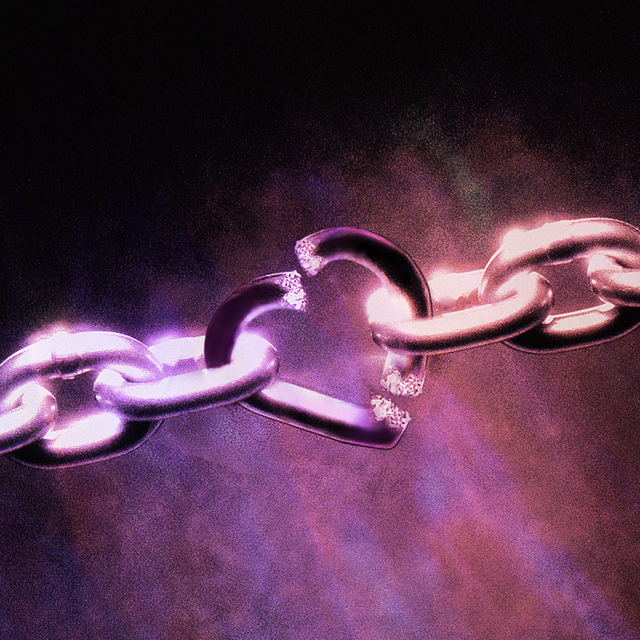We can all probs agree that breakups are the bane of our existence (though definitely not the object of all our desires à la Bridgerton)—even, at times, when approached mutually and amicably. And after years of pandemic-induced splits, with 2021 literally being declared the “year of the breakup album” (still crying through Adele’s 30, tbh), we’re due for a collective check-in, yeah? Because knowing how to break up with someone sucks, but we’ve got your back through it all.
Now, unfortch, there’s no simple way to end a relationship. Deciding you actually want to break things off with your partner is half the battle—then it’s time to map out how you’re actually going to do it. And when you’re worried about hurting them, feel sad about losing access to their family or any mutual friends, and are struggling to let go of the life you imagined together, it’s easy to see why breakups are such emotional rollercoasters.
But it’s still important to keep your reality at the forefront. “Our minds usually dwell on, What if I never find someone again? but reorienting your perspective to, This gives me time to be on my own, to pour into these parts of myself I’ve neglected, can help reinforce your decision,” says licensed psychotherapist Brooke Schwartz. “It’s really tempting to backtrack, but it’s important to honor your intuition and offer yourself compassion. It can be helpful to remember, while going through this process, what you’re getting from having made this decision.”
While there’s truly no perfect way to go about initiating a breakup (sorry, Virgos and Caps), we pulled in a few experts for guidance on planning the dreaded conversation, so you can make the experience as honest, effective, and healthy as possible. Here’s what they had to say about how to approach the conversation.
How to know it’s time to break things off
According to dating strategy consultant Chelsea Sterling, sometimes the signs it’s time to end your relationship feel pretty obvious, like if your partner is abusive, manipulative, or hurting you in any way. But it’s not always super clear. Maybe the timing is off—one of you is in a busier season of life, or your relationship has to be long-distance for an extended period of time and you’re not willing or able to make it work. Perhaps you’ve noticed you’re no longer interested in making time for intimate moments, you’ve stopped having important conversations, or you’re disagreeing on important things like finances, religion, politics, or your expectations for the future.
“More so than previous generations, millennials and Gen Zers are working toward self-actualization. They’re looking for a partner who helps them reach their goals, a partner who expands their mind,” Sterling says. “And if they don’t find that, they’re not continuing with the relationship.”
This is why zooming out and evaluating how your relationship fits into what you’ve envisioned for your life is important, licensed clinical and organizational psychologist Aly Goldstein, PsyD, explains.
“Take the time to really think, Is this person serving my current needs? Am I growing in the ways that I thought I would be growing at this point in my life? Am I being empowered by this person? Am I enjoying my time with this person? Or am I finding myself constantly trying to figure out how to make things better, or wanting to do things that I feel excited about, but something related to my relationship always gets in the way?” says Goldstein. “Feeling stunted in your personal growth or happiness is an essential reason why a relationship might not be a good idea.”
Is there a “right” time to break up with someone?
Once you’ve come to the realization that it’s time to end things, finding the “right” time to do it can be tricky. What if there’s a holiday coming up? Should you wait until after their birthday? What if you’re apart and won’t be together in person for a while? What if you live together? Frustratingly enough, there’s no such thing as the “perfect” moment. But dragging on the relationship after you’ve mentally decided that it’s over doesn’t feel great either.
“If your partner is continuing the relationship as if they think that you’re invested, sometimes doing the harder thing is actually the most loving and caring thing you can do,” Schwartz says.
Goldstein adds a caveat to this, though, in that you should set yourself up for the most effective conversation possible. If they have a stressful work event coming up the next morning, maybe don’t have the talk the evening before.
”If either of you are under any stress, for whatever reason, the conversation may not be as productive as it could,” Goldstein says. “Since you’d know your partner the most (and their schedule), pick a time when you’d both be most clear-minded during the day—when your communication skills could be at your best capacity. It’s not always possible to do this in person, but setting up a FaceTime call would be your next best step. If a Facetime call won’t work, then maybe a phone call.”
How to have the breakup talk
Once you’ve decided on the best time, Schwartz says there’s a few things you should keep in mind when considering how to approach the conversation, and much of it depends on how long you’ve been in the relationship, your dynamic, and what you know about your own needs, your partner’s needs, and both of your reaction patterns.
“If you’re breaking up a relationship where there’s been recent abuse, or there's something that's leading you to feel unsafe, there's a difference between that and a relationship that's incredibly loving and safe, but just not right for you,” says Schwartz. “If you know that this person has a history of being violent, take into consideration if this is something you want to do in a private place or in a semi public place.”
She advises to think carefully about a breakup conversation plan. Map out what you need to say, but also think about how your partner may respond, how you’ll feel saying the words aloud, and if your partner will try to convince you to change your mind. Draw out hypotheticals with your location in mind: When will you need a deep breath? When will you need to step away, if at all? How will you respond to their emotions? How will you respond to them trying to change your mind, if they do?
It’s important to accept that this conversation might not feel good for either of you, and that doesn’t mean you’re making the wrong choice. Sterling says it’s important to express yourself clearly and honestly while having the conversation. If your intentions are for the conversation to end in a breakup, don’t beat around the bush in expressing that, or leave things vague in order to preserve your partner’s feelings.
“Try not to have this conversation when you’re angry, or it’s not going to be as effective,” Goldstein adds. “If you can, write what you need to say beforehand, so you know what to stick to, and you can make sure you’ve said all of what you need to say. Try to be fair to the other person, even if you’re hurt. You don’t need to be overly honest with the details, but share enough so that your thoughts and feelings are clear.”
Healing and moving on
In movies and shows, all devastating breakups unfold similarly: crying sessions over a tub of ice cream, angsty breakup songs (hi, Olivia Rodrigo), drunk nights out with friends, and the general slow-motion montage of how sad the character’s life is without their partner until eventually, they’re happy again.
There’s not really a formula for moving on, though. Your healing period may look and feel different from what you initially expected, and—repeat after me—that’s okay!
“We assume that there's going to be a certain trajectory of healing or recovering from a breakup,” Schwartz says. “It’s the sort of thing we tell ourselves to make ourselves feel better, but realistically, healing from a breakup means bouncing all over the place. You could be thinking about a breakup you had 10 years ago, and that’s a part of your grieving process. You may not feel pained about it anymore, but these things can pop back up, depending on where we are in our lives. That’s normal and healthy.”
TLDR? Breaking up looks different for everyone, and there is no one-size-fits-all formula for how to best go about it. But honesty—with both yourself and your partner—is key to getting through it in the most authentic way possible. Breakups are tough, yeah, but you might find that parting ways grants you space to evaluate the parts of yourself that need inspection, and to pour some love, energy and effort into your own goals, growth, and self-esteem. And eventually—even though it might not quite play out like in the movies—you’ll get through it.

Natalia Pérez-Gonzalez (she/her) is a freelance journalist primarily covering wellness, relationships, and Afro Latinidad stories. Her words also live on Bustle, Refinery29, TheGrio, and more. When she’s not writing, she can likely be found spending way too much time watching apartment reno TikToks, rewatching New Girl for the umpteenth time, and doing other majestical forms of introverting. Follow her on Instagram and Twitter!













